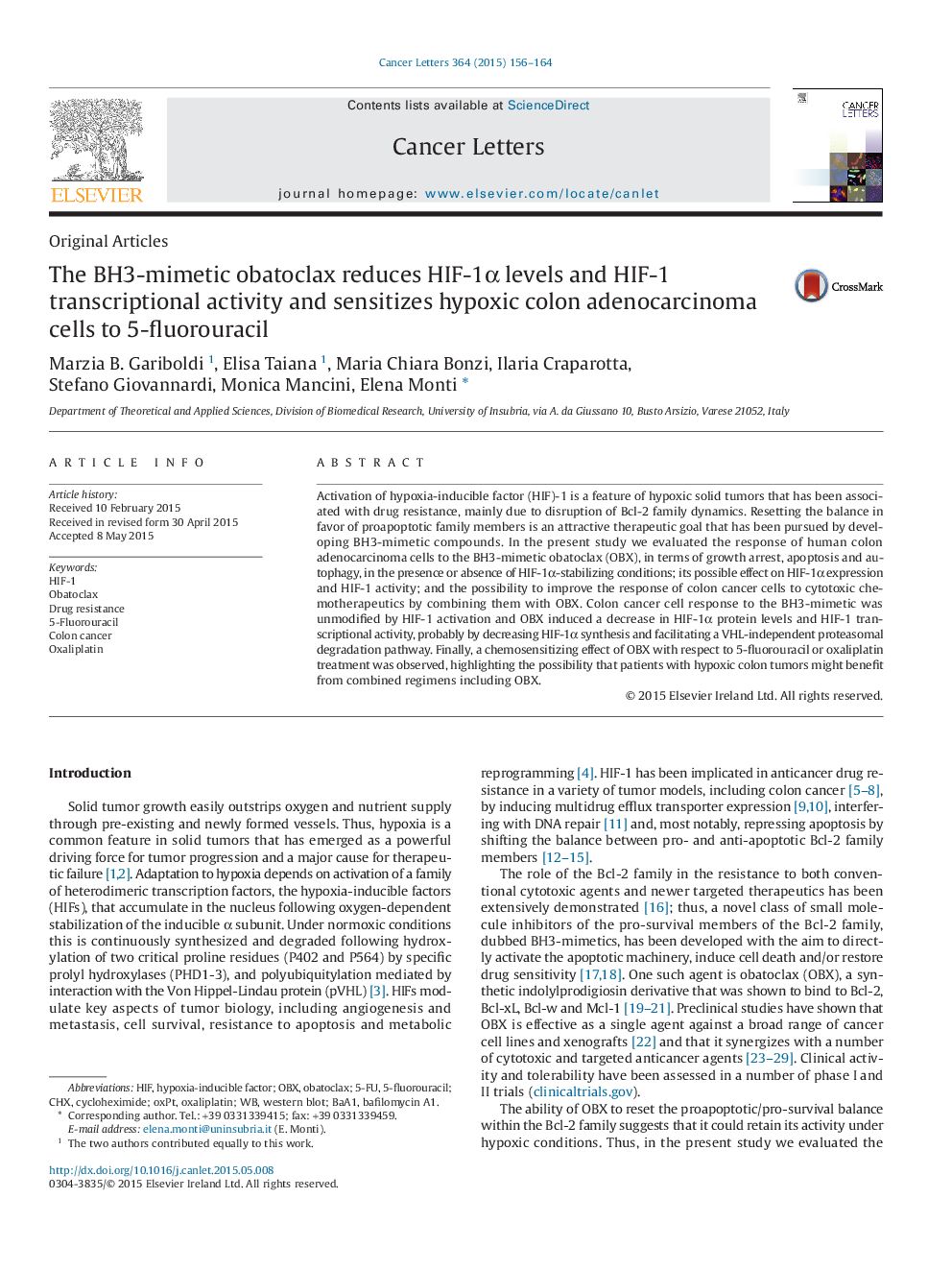| Article ID | Journal | Published Year | Pages | File Type |
|---|---|---|---|---|
| 10899528 | Cancer Letters | 2015 | 9 Pages |
Abstract
Activation of hypoxia-inducible factor (HIF)-1 is a feature of hypoxic solid tumors that has been associated with drug resistance, mainly due to disruption of Bcl-2 family dynamics. Resetting the balance in favor of proapoptotic family members is an attractive therapeutic goal that has been pursued by developing BH3-mimetic compounds. In the present study we evaluated the response of human colon adenocarcinoma cells to the BH3-mimetic obatoclax (OBX), in terms of growth arrest, apoptosis and autophagy, in the presence or absence of HIF-1α-stabilizing conditions; its possible effect on HIF-1α expression and HIF-1 activity; and the possibility to improve the response of colon cancer cells to cytotoxic chemotherapeutics by combining them with OBX. Colon cancer cell response to the BH3-mimetic was unmodified by HIF-1 activation and OBX induced a decrease in HIF-1α protein levels and HIF-1 transcriptional activity, probably by decreasing HIF-1α synthesis and facilitating a VHL-independent proteasomal degradation pathway. Finally, a chemosensitizing effect of OBX with respect to 5-fluorouracil or oxaliplatin treatment was observed, highlighting the possibility that patients with hypoxic colon tumors might benefit from combined regimens including OBX.
Keywords
Related Topics
Life Sciences
Biochemistry, Genetics and Molecular Biology
Cancer Research
Authors
Marzia B. Gariboldi, Elisa Taiana, Maria Chiara Bonzi, Ilaria Craparotta, Stefano Giovannardi, Monica Mancini, Elena Monti,
